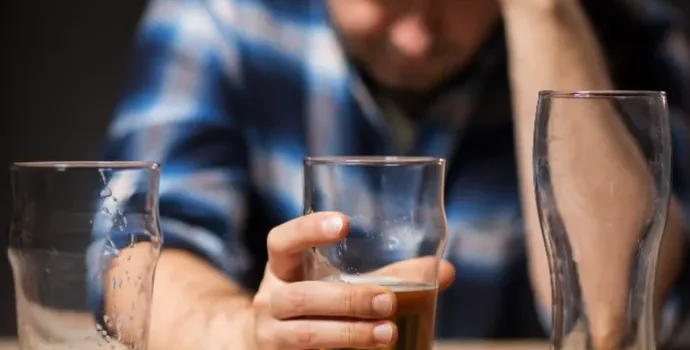Hypertension, or high blood pressure, is a serious condition that can lead to severe health problems like heart disease and stroke if not managed properly. While factors such as aging and genetics play a role, lifestyle choices are often the deciding factors in the development of hypertension. One lifestyle factor that plays a significant role in blood pressure is alcohol consumption. So, how much alcohol is too much when it comes to managing your blood pressure?
What Is Considered Moderate Drinking?
Before exploring the effects of alcohol on blood pressure, it’s important to understand what is considered moderate drinking. According to the Dietary Guidelines for Americans, moderate alcohol intake is defined as up to one drink per day for women and up to two drinks per day for men. A standard drink is defined as:
- 12 ounces of regular beer
- 5 ounces of wine
- 1.5 ounces of distilled spirits (e.g., vodka, rum, whiskey)
Drinking beyond these guidelines is classified as heavy or high-risk drinking, while binge drinking refers to consuming four or more drinks in a two-hour span for women and five or more for men, resulting in a blood alcohol level of 0.08% or higher.
Alcohol’s Impact on Blood Pressure
Studies show that drinking above the moderate level regularly can lead to an increase in blood pressure. A study from the American Heart Association involving over 19,000 adults across the U.S., Japan, and Korea found that alcohol consumption was directly related to higher systolic blood pressure (the top number in a blood pressure reading). The study revealed that drinking about 12 grams of alcohol daily (just under one standard drink) led to an increase of 1.25 mmHg in systolic blood pressure over five years. However, those who consumed around 48 grams of alcohol daily saw an increase of 4.9 mmHg during the same period.
This rise in blood pressure is due to alcohol stimulating the sympathetic nervous system, which governs the body’s stress response. When alcohol is consumed, it triggers the body’s “fight-or-flight” response, causing blood vessels to constrict and temporarily raising blood pressure. Additionally, alcohol interferes with brain receptors that help regulate blood pressure, making it harder for the body to return to normal levels.
Drinking Responsibly With Hypertension
If you already have high blood pressure or are concerned about your risk, you don’t necessarily have to give up alcohol entirely. However, it’s crucial to practice moderation. Here are some tips for drinking responsibly while managing hypertension:
- Measure your drinks: Use a shot glass or jigger to pour drinks accurately, and try not to fill your wine glass beyond halfway to ensure you’re not consuming more than you realize.
- Stay hydrated: Alternate between alcoholic beverages and water or seltzer. This helps reduce overall alcohol consumption and prevents dehydration, which can worsen blood pressure.
- Eat before or while drinking: Food slows the absorption of alcohol into the bloodstream, reducing its impact on your body.
- Choose lower-alcohol options: Opt for beer or wine over hard liquor, which tends to have higher alcohol content.
- Dilute your drinks: If you’re drinking spirits, consider adding extra ice or mixing them with soda or juice to lower the alcohol concentration.
- Stick to the guidelines: Limit alcohol to one drink per day for women and two for men. Try to have at least two or three alcohol-free days each week.
- Sip slowly: Avoid drinking quickly, as this allows your body more time to process the alcohol.
Being mindful of your alcohol intake, pacing yourself, and incorporating alcohol-free days can help you enjoy social occasions without negatively affecting your health.
Managing Hypertension Beyond Alcohol
Reducing alcohol consumption alone may not be enough to control hypertension. For most people, effective blood pressure management requires addressing several lifestyle factors:
- Maintain a healthy weight: Extra weight puts additional strain on your heart and circulatory system. Losing even a small amount of weight (5-15%) can significantly improve blood pressure.
- Exercise regularly: A mix of cardio and strength training can help improve heart health and lower blood pressure.
- Manage stress: Chronic stress is a significant factor in elevated blood pressure. Finding ways to relax, such as through yoga, meditation, or engaging in hobbies, can help.
- Limit sodium intake: Reducing sodium to less than 2,300 milligrams per day can help control blood pressure. Use herbs and spices for flavor instead of salt.
- Eat a heart-healthy diet: Focus on fruits, vegetables, lean proteins, and whole grains, which help nourish your blood vessels and maintain healthy blood pressure.
- Take prescribed medications: If your doctor has prescribed blood pressure medication, make sure to take it as directed.
- Monitor your blood pressure: Regular checkups with your doctor, along with home blood pressure monitoring, are essential for tracking your progress and making adjustments as needed.
By combining these lifestyle changes, including moderating alcohol consumption, you can effectively manage hypertension and reduce the risks associated with high blood pressure.











